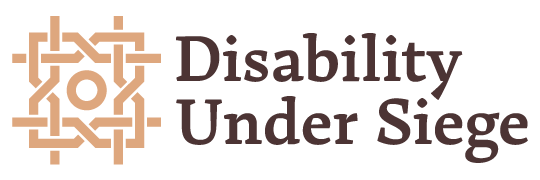Comparative Case Study on the Impacts of COVID-19
on Persons with Disabilities in Jordan, Lebanon and Palestine
There is growing evidence that the global COVID-19 crisis is exacerbating existing inequalities and marginalization of persons with disabilities as confirmed by WHO (2020): “Certain populations, such as those with disability, may be impacted more significantly by COVID-19”. These challenges are multi-sectoral and intersecting, and require a multi- and interdisciplinary research evidence base to inform a disability inclusive response. These challenges include being at a greater risk of contracting COVID-19, developing more serious health conditions leading to higher mortality rates, challenges in accessing healthcare, public health information on outbreaks and having reasonable accommodation, if quarantined. In addition, persons with disabilities are more adversely impacted economically, and it is thought that students with disabilities have greater challenges accessing education, including online access (UN, 2020). In addition, intersecting forms of discrimination such as gender, socioeconomic and legal status further exacerbate the challenges.
There has been, for example, data indicating greater domestic violence rates as a result of lockdown measures, and whilst there is still no empirical research data, it is hypothesised that women with disabilities may be at higher risk of violence and abuse. The UN is playing a leading role in raising awareness at international policy levels, and the UNPRPD is working with a number of countries in conducting situational analyses to assess the nature and scale of the discrimination and exclusions, and developing in partnership with these countries, a framework to promote and support the implementation of a disability-inclusive response and recovery from Covid-19.
Project Outline
The rationale for this project is to build the research evidence base on the impacts of Covid-19 on persons with disabilities in the social, educational, economic and health sectors to inform the development of strategies for disability inclusive recovery and “building back better” for more disability-inclusive societies..
Phase 1 (Months 1 and 2)
Establish a baseline of existing research, policies and practices that have been
developed since March 2020 & identify key challenges and gaps in research
Phase 2 (Months 3-5)
Co-develop a research plan for data collection and
analysis with stakeholders in the areas identified as key challenges to persons
with disabilities in the context of COVID-19. It is envisioned that data collection
methods would entail the following in each country context:



Phase 3 (Month 6)
Analysis and write-up of the project findings, with the production of a final project report and a UN Framework coordination meeting with all other case studies groups, to discuss the final reports and recommendations for research priorities to the AHRC and UN partnership.
Aims & Objectives
▪ Inform a multi-sectoral response to the increased social, educational, economic and health challenges arising from COVID-19;
▪ Develop medium-long-term strategies for implementation of UNCRPD the implementation (Convention on the Rights of Persons
with Disabilities);
▪ Support work that promotes the inclusion of views of those with disabilities at national and regional levels;
▪ Contribute to a medium-long term partnership and identification of research priorities between UKRI and the UN in the field of disability
and development.
Research Team
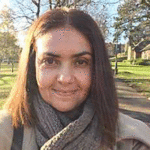
Professor Dina Kiwan, Professor in Comparative Education, University of Birmingham (Principal Investigator)
Dina Kiwan is the Principal Investigator for Disability Under Siege. Her research focuses on citizenship and inclusion, and is interdisciplinary and comparative in scope. Her interests centre around sociological and politico-philosophical examinations of inclusive citizenship through the lens of education policy, naturalisation policy and migration policy, in particular in the context of pluralist/multicultural societies, and also societies in conflict.
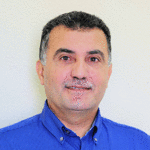
Dr Nazmi Al-Masri, Associate Professor of TEFL & Curriculum Development, Islamic University of Gaza (Co-Investigator)
Nazmi Abdel-Salam Al-Masri’s primary research interests are technologies in teaching and learning foreign languages, intercultural studies and multilingualism in context of emergencies, teacher training of foreign languages in English and Arabic, disability and inclusive education studies in the context of crises, and English language curriculum studies.
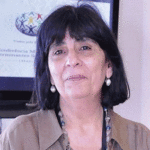
Professor Rita Giacaman, Professor of Public Health, Birzeit University
(Co-Investigator)
Rita Giacaman is Professor of Public Health at the Institute of Community and Public Health, Birzeit University, West Bank, in occupied Palestinian territory. The founder of the Institute, Rita's current work focuses on the development of measures to assess psycho-social health which are relevant and appropriate for context, and ways in which interventions could generate active and positive resilience and resistance to ongoing war-like conditions, especially among youth.
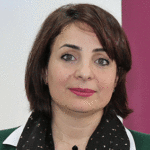
Dr Maha Shuayb, Director of the Centre for Lebanese Studies
(Co-Investigator)
Maha Shuayb has been the Director of the Centre for Lebanese Studies since 2012 and also teaches part-time at the Lebanese American University. Her research focuses on the sociology and politics of education, particularly equity and equality in education and the implications of the politicisation of education, particularly on marginalised groups. Over the past five years, Maha has been occupied with the education response to the Syrian refugee crisis in Lebanon. She has headed a number of research studies looking at access and quality of education for refugees and the bottlenecks.
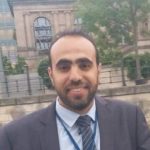
Bahaalddin M. A. Serhan, Director of Disability Services and Inclusion Center (DSIC) Islamic University- Gaza (Research Associate)
Bahaa is the Director of Disability Services and Inclusion Center at the Islamic University in Gaza. He has a Masters degree in curricula and teaching methods from Alazhar University Gaza and his research focusses on Inclusive Education for Deaf and Hard of Hearing (DHH) students in higher education institutions.
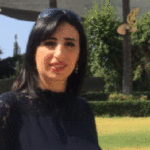
Dr Itab Shuayb, Centre for Lebanese Studies (Research Associate)
Dr Itab Shuayb has a PhD in Inclusive Design from the University of Kent-UK. She is an inclusive specialist and a member of the steering committee for the Disability Hub at the Centre for Lebanese studies- Lebanon She is a Fulbright Visiting Scholar alumnus with a main research interest in Inclusive Design and accessibility. Her recent book published by Springer-Nature publishing book in 2020, entitled: Inclusive University Built Environments: The Impact of Approved Document M for Architects, Designers and Engineers.
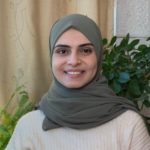
Lina Abdul Samad
Lina is a research assistant working on the “Disability Under Siege” project at the Institute of Community and Public Health, Birzeit University. She holds a Bachelor of Science in Nutrition and Dietetics from Birzeit University.
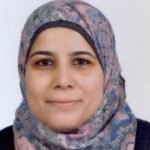
Suzan Mitwalli
Suzan Mitwalli is an academic researcher at the Institute of Community and Public Health - Birzeit University. Her main research interest is mental health, and she has worked for many years on an intervention research with the Community Based Rehabilitation organization (CBR). She has experience in both quantitative and qualitative research and community-based interventions.

Sabine Doueiry
A recent Architecture graduate from the American University of Beirut, Sabine is a research assistant at the Centre for Lebanese Studies. During her thesis year, she explored theatrical performance as a spatial manifestation of an individual’s own perspective/perception where this spatial yield responds to the specific body-space relationship between the individual and the space; therefore, at CLS, she combines her conviction about the validity of each person’s perspective with her architectural skills to utilize her current research position towards inclusive design.
